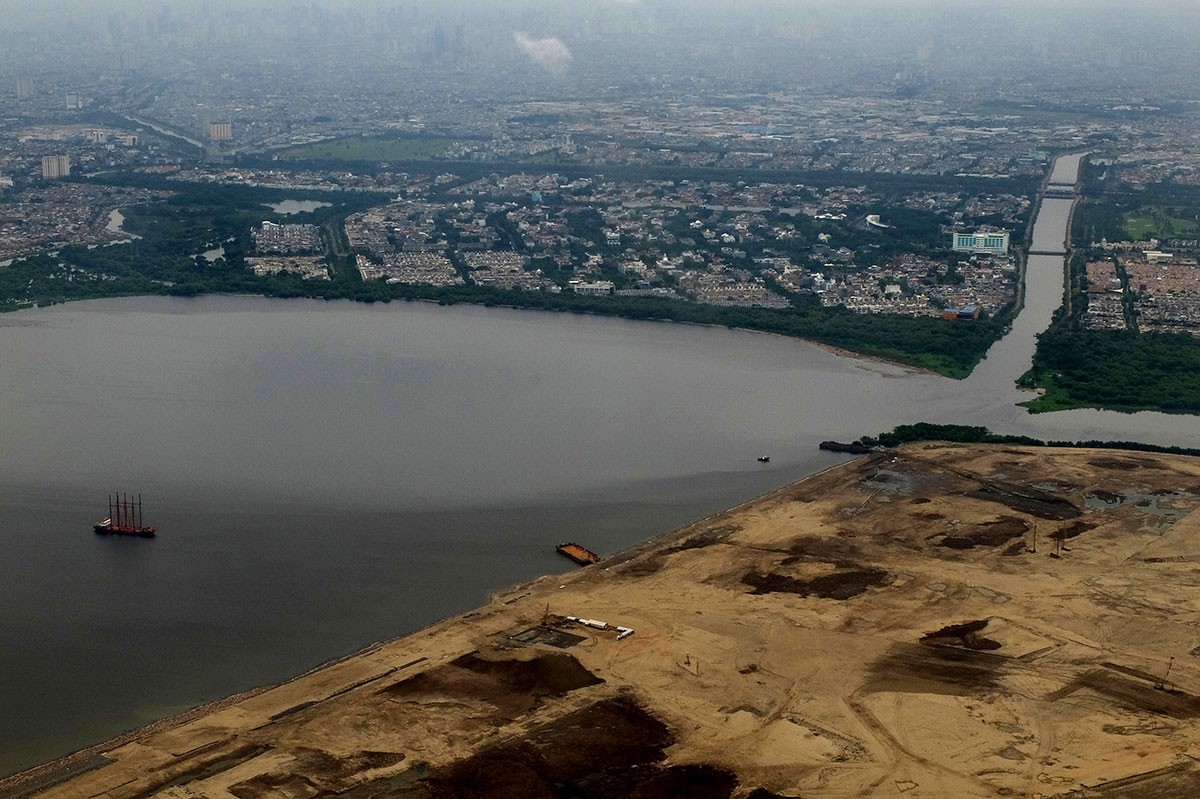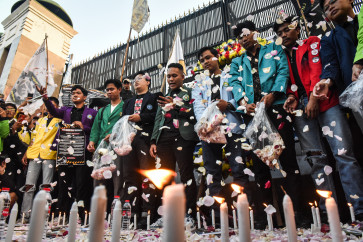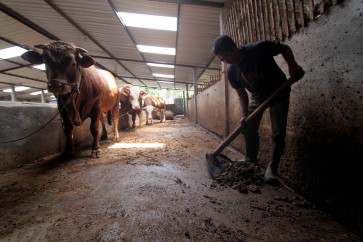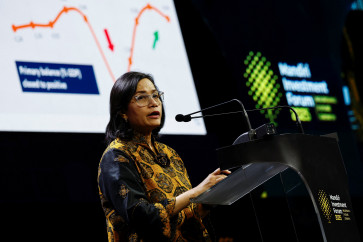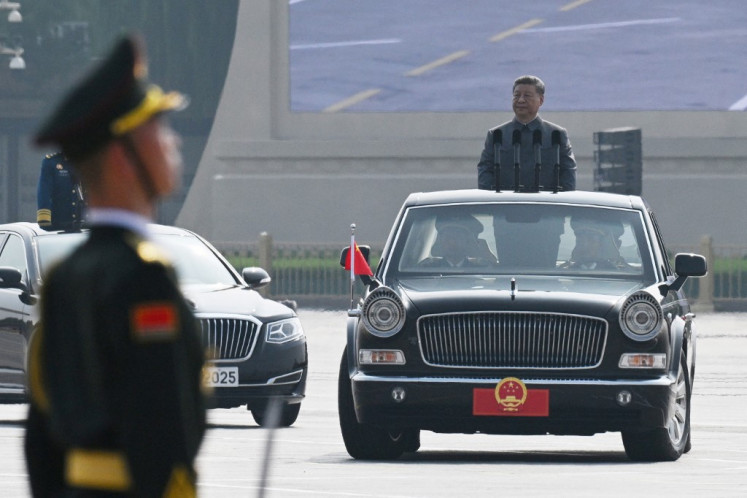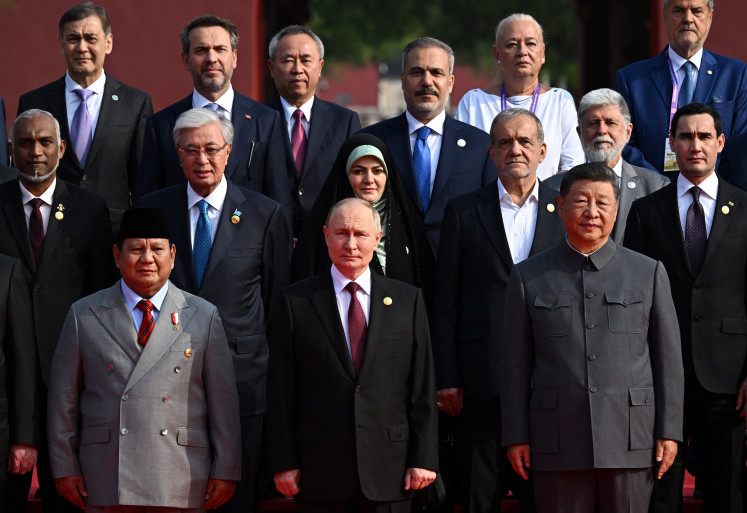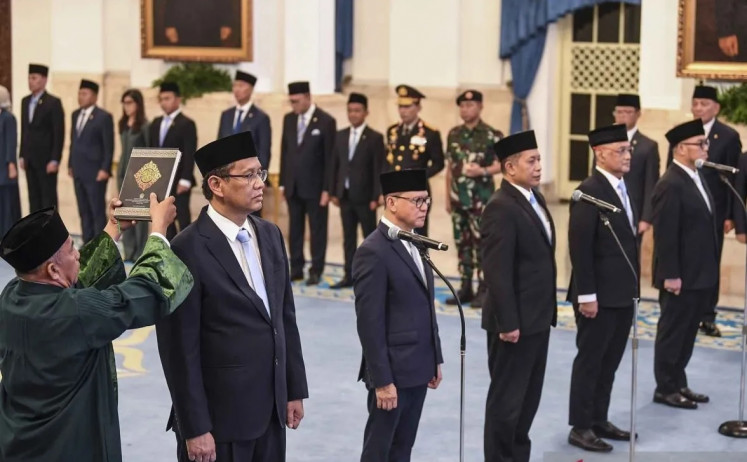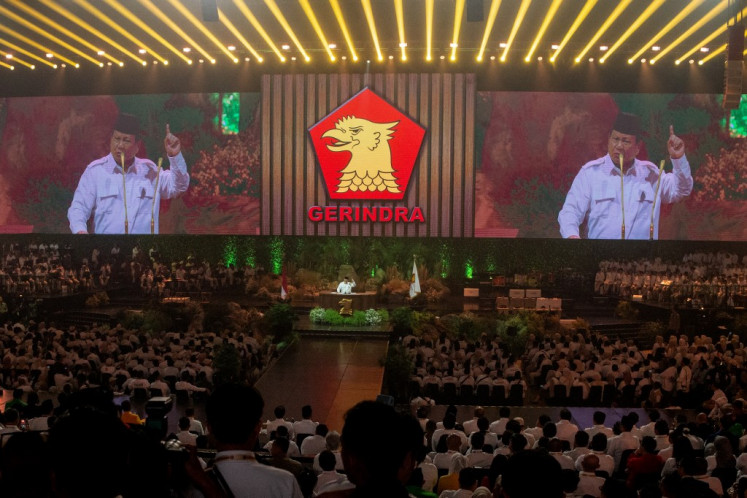Popular Reads
Top Results
Can't find what you're looking for?
View all search resultsPopular Reads
Top Results
Can't find what you're looking for?
View all search resultsPragmatic approach not answer to Jakarta's reclamation project
No matter how many trees would be replanted, they would never be enough for thousands of the evicted people in the Jakarta Bay.
Change text size
Gift Premium Articles
to Anyone
I
n his Sept.7 article in The Jakarta Post, Muamar Vebry suggests that the project of 17 artificial islands off the capital’s coast should be reforested to reverse the loss of marine ecosystems in Jakarta and to turn the development into an environmental program instead.
This overly pragmatic approach is insufficient for two main reasons.
First, such a view neglects the damages that cannot be replaced or redeemed by environmental gains. No matter how many trees would be replanted, they would never be enough for thousands of the evicted people in the Jakarta Bay.
Nor would it address the problems of more carbon footprints produced by moving those people and building block housings in Jakarta for the evicted. The whole reclamation project is built on ecological crisis beyond the Jakarta Bay. For one, cement used for reclamation is produced by Indocement whose factory was built on disputed land in Central Java.
Second, replacing one development project with another further wraps up the capital accumulation in environmentally friendly cloth. Changing the project does not address the root reason why the reclamation project was presented from the start. A new project would justify the reclamation project and sandmining to supply soil to build the artificial islands, that exploits the coastal environment of Banten province.
Understanding social ecology becomes more important than Vebry’s environmentalist approach. Social ecology seeks to understand all the actors and structures that are involved and working in an ecosystem; including humans and their social-economic relationship with the environment and technology.
What is often neglected is that current ecological problems are catalyzed by societal problems. The Jakarta reclamation project is not all about the environment, but also about the politics and the economic interest of certain elite groups, as shown by research by The Centre Research on Multinational Corporation (SOMO) in April 2017. Reforesting islands whose initial purpose was anything but to serve the ecology balance would not contribute to environmental equilibrium. The end does not at all justify the means.
In Jakarta’s case, policymakers seem to pay no attention to the environmental impact of the forced eviction of the fishermen. Displacing people forcibly contributes to an increase of carbon footprints related to the new need for transportations. Furthermore, the independent documentary filmmakers of WatchDoc reported many fishermen become unemployed and fearful of becoming homeless. The precarious condition adds to the capital’s long list of social and environmental problems.
To push an environmental agenda while neglecting the entangled social ecology of the communities tied to the ecosystem manifests the limits of a technocratic approach of the reclamation project. Moreover, we haven’t talked about how the sediments of the Giant Sea Wall, another potentially hazardous project integrated into the reclamation project, will affect the marine ecosystem in Jakarta Bay and even the 17 islands.
Reforestation for our environmental balance now sounds out of reach. Such a simplistic view also shows the danger of short-term vision that exemplifies our logic to save the environment. Vebry suggests that reforestation could bring benefits in ecotourism.
In 2011 researchers Erik Go´mez-Baggethun and Manuel Ruiz Pe´rez reported their study titled “Economic Valuation and the Commodification of Ecosystem Service” in which they criticized commodification in proposals of ecotourism as a way to attach economic valuation into the ecosystem and commodify it in order to save it.
Yet whether we can gain profit or not from the targeted areas of “ecotourism”, protecting the environment is mandatory.
Commodifying nature by ecotourism of Jakarta Bay also means double exclusion. First, building the island already excluded thousands of families in Jakarta, and second, only people who can pay to enjoy leisure activity can afford such “ecotourism”.
In short, the reclamation project becomes commodification of the environment. Neither situation contributes to save the Earth nor to fix the Jakarta’s infamous problem with the ecosystem. Here, answering Vebry’s rhetorical question, capital wins.
Social ecology may deliver us a more realistic image of environmental balance than the pragmatic approach. Instead of coming up with another fraudulent development projects claiming to advance society and the environment, the perspective of social ecology will lead us to a more participatory approach in building a healthy environment and to start demanding explanations for why Jakarta suffers from annual flooding, pollution, and its waste problems.
There is a multitude of conflicts in Jakarta’s environmental problems. Causes might include overpopulation, due to uneven development outside Jakarta that attracts overwhelming in-migration. It could be the lowering level of soil because Jakarta has too many malls and large buildings that serve the upper middle class and corporations.
Another possible cause is the clientelism haunting our transportation modes – with government interests clashing with private holdings, contributing to our chaotic transportation and ineffective laws to regulate cars and motorcycles.
A business-like and short-sighted solution like reforestation eventually will help only certain people to have rights to a better environment and sustainable lives, rather than all the people of Jakarta, especially those severely affected by the development projects.
In this critical time, it is highly crucial to look back and relearn again what we know about the environment. There is no quick solutions for the problem that has persisted since the dawn of human civilization. The old proposal of “replant trees” for every serious ecological problem only worsens the situation in the future.
Social ecology forces us to think creatively for the long-term and to make us realize that the environmental problems wouldn’t be resolved overnight since it is caused by layers of conflict of actors in the ecosystem. It asks for humility that we cannot control, estimate and calculate what the environment can do or cannot do.
***
The writer is a 2017 Arryman Predoctoral Research Fellow at the Equality Development and Globalization Studies Buffett Institute, Northwestern University, Illinois.
---------------
We are looking for information, opinions, and in-depth analysis from experts or scholars in a variety of fields. We choose articles based on facts or opinions about general news, as well as quality analysis and commentary about Indonesia or international events. Send your piece to academia@jakpost.com.

